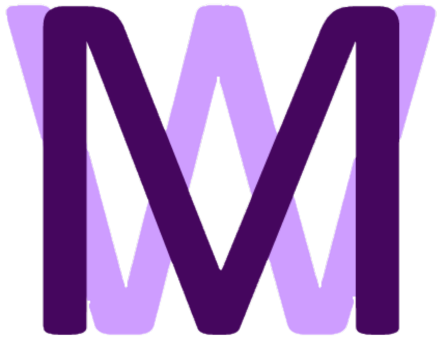
Digital Promotion
Digital Promotion: Strategies for Maximizing Your Online Presence
Introduction to Digital Promotion
Digital promotion encompasses a wide range of online marketing activities designed to increase the visibility, awareness, and engagement of a brand, product, or service. In an increasingly digital world, businesses must leverage various online channels to reach and connect with their target audience. From social media and email marketing to search engine optimization (SEO) and paid advertising, digital promotion is essential for driving traffic, generating leads, and boosting sales.
The Importance of Digital Promotion
With billions of people using the internet daily, digital promotion is crucial for reaching a global audience. Unlike traditional marketing, digital promotion allows for precise targeting, real-time feedback, and measurable results. It enables businesses to engage with customers where they spend most of their time—online—and provides a cost-effective way to build brand awareness, drive traffic, and increase conversions.
Key Components of Digital Promotion
- Search Engine Optimization (SEO):
SEO is the process of optimizing your website and content to rank higher in search engine results pages (SERPs). By improving your site’s visibility on search engines like Google, you can attract more organic traffic. SEO involves keyword research, on-page optimization, technical SEO, and creating high-quality content that meets the needs of your target audience. - Social Media Marketing:
Social media platforms like Facebook, Instagram, Twitter, LinkedIn, and TikTok are powerful tools for digital promotion. By creating and sharing engaging content, running paid ads, and interacting with your audience, you can build a strong online presence, increase brand awareness, and drive traffic to your website. - Content Marketing:
Content marketing involves creating valuable, relevant, and consistent content to attract and retain a clearly defined audience. This can include blog posts, videos, infographics, ebooks, podcasts, and more. The goal is to provide value to your audience, establish authority in your industry, and encourage customer loyalty. - Email Marketing:
Email marketing is a direct way to communicate with your audience. By sending targeted, personalized messages to your subscribers, you can nurture leads, promote products or services, and build relationships with your customers. Email campaigns can be automated and segmented to ensure the right message reaches the right person at the right time. - Pay-Per-Click Advertising (PPC):
PPC is a form of online advertising where you pay each time someone clicks on your ad. Platforms like Google Ads and social media sites offer PPC options that allow you to target specific audiences based on keywords, demographics, interests, and behaviors. PPC is effective for driving immediate traffic and conversions. - Influencer Marketing:
Influencer marketing involves partnering with individuals who have a large and engaged following on social media or other online platforms. These influencers can help promote your brand to their audience, increasing your reach and credibility. Influencer marketing can be particularly effective for targeting niche markets or specific demographics. - Affiliate Marketing:
Affiliate marketing allows other businesses or individuals to promote your products in exchange for a commission on sales generated through their efforts. This strategy extends your reach and can significantly boost sales without upfront costs, as affiliates are paid only when they deliver results. - Online Public Relations (PR):
Digital PR involves managing your online reputation through media outreach, press releases, and relationship-building with online journalists and influencers. It helps to increase brand visibility, build credibility, and drive traffic through earned media coverage.
Steps to an Effective Digital Promotion Strategy
- Define Your Goals:
Start by setting clear, measurable goals for your digital promotion efforts. These could include increasing website traffic, generating leads, boosting sales, or enhancing brand awareness. Your goals will guide your strategy and help you measure success. - Identify Your Target Audience:
Understand who your target audience is, including their demographics, interests, online behavior, and pain points. This will help you tailor your digital promotion efforts to reach the right people with the right message. - Choose the Right Channels:
Select the digital channels that align with your goals and audience. For instance, if you’re targeting professionals, LinkedIn might be more effective than Instagram. If you’re looking to drive immediate sales, PPC might be a good option. - Create High-Quality Content:
Content is at the heart of digital promotion. Develop content that is informative, engaging, and relevant to your audience. This could include blog posts, videos, social media posts, infographics, and more. High-quality content will help you attract, engage, and convert your audience. - Optimize for Search Engines:
Implement SEO best practices to ensure your content is easily discoverable by search engines. This includes optimizing your website’s technical aspects, using relevant keywords, and creating content that answers common queries from your audience. - Leverage Social Media:
Use social media to distribute your content, engage with your audience, and promote your brand. Regularly post, interact with followers, and run paid campaigns to increase your reach and drive traffic. - Utilize Email Marketing:
Build and segment your email list to send targeted campaigns that align with your audience’s interests and behaviors. Personalize your emails to increase open rates and conversions. - Measure and Optimize:
Use analytics tools to track the performance of your digital promotion efforts. Monitor key metrics like website traffic, conversion rates, engagement levels, and ROI. Use this data to refine your strategy and optimize future campaigns.
Benefits of Digital Promotion
- Wider Reach:
Digital promotion allows you to reach a global audience, breaking geographical barriers that limit traditional marketing methods. - Cost-Effectiveness:
Compared to traditional advertising, digital promotion is often more affordable and provides a higher ROI. You can reach more people with less investment. - Targeted Marketing:
Digital channels offer advanced targeting options, allowing you to reach specific audiences based on demographics, interests, and online behavior. - Measurable Results:
Digital promotion provides detailed analytics and insights, making it easier to track performance, measure success, and adjust strategies in real-time. - Enhanced Engagement:
Digital promotion enables real-time interaction with your audience, fostering stronger relationships and increasing customer loyalty. - Improved Brand Awareness:
Consistent digital promotion across multiple channels increases your brand’s visibility, helping you stand out in a crowded market.
Challenges in Digital Promotion
- Intense Competition:
The digital space is crowded, and standing out requires creativity, consistency, and a deep understanding of your audience. - Rapidly Changing Algorithms:
Social media platforms and search engines frequently update their algorithms, which can impact the visibility of your content. - Content Overload:
With so much content available online, capturing and maintaining your audience’s attention can be challenging. - Ad Blockers:
The use of ad blockers can limit the reach of your paid advertising campaigns, making it essential to create non-intrusive, high-quality content.
The Future of Digital Promotion
As technology continues to evolve, digital promotion will become even more sophisticated. The integration of artificial intelligence, machine learning, and automation will enable more personalized and efficient marketing strategies. Additionally, the rise of new platforms, such as augmented reality (AR) and virtual reality (VR), will offer exciting opportunities for immersive brand experiences.
In conclusion, digital promotion is an essential aspect of modern marketing that offers numerous opportunities for businesses to connect with their audience, drive engagement, and achieve their goals. By leveraging the right strategies, tools, and channels, businesses can maximize their online presence and stay competitive in an ever-evolving digital landscape.
